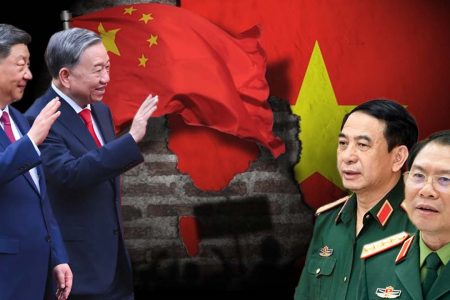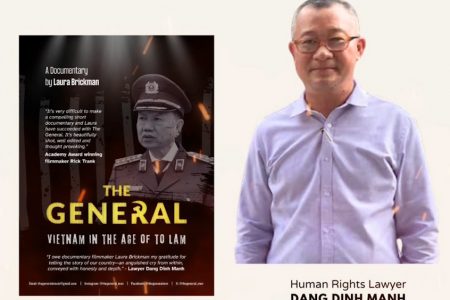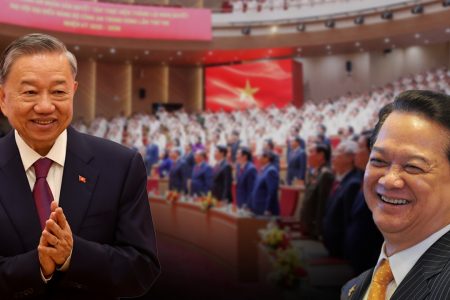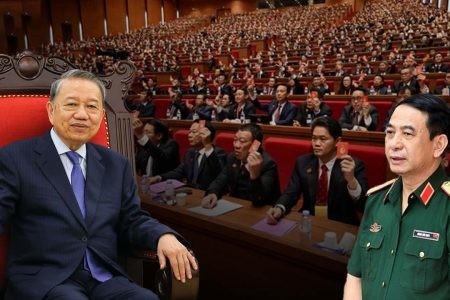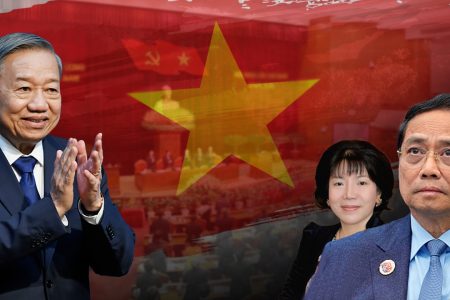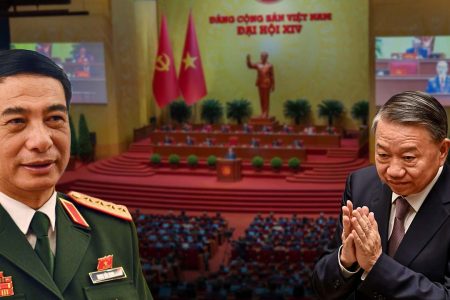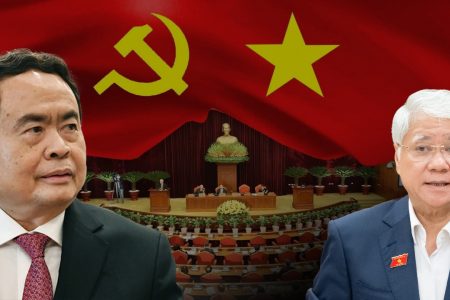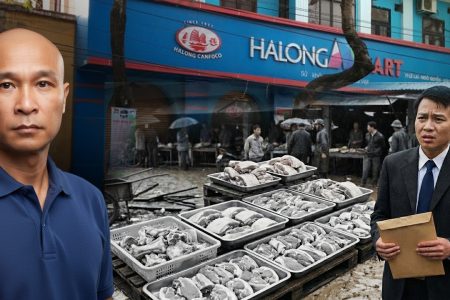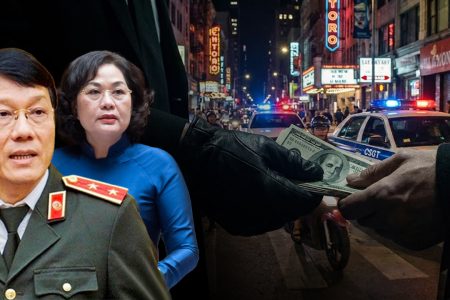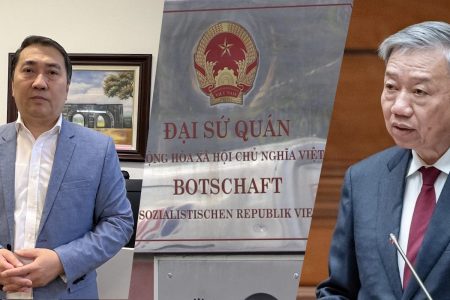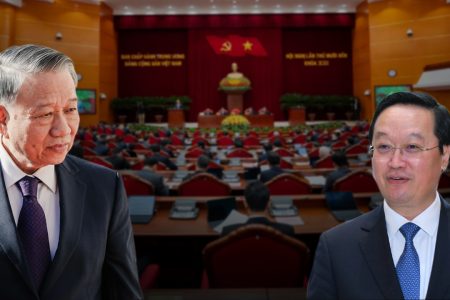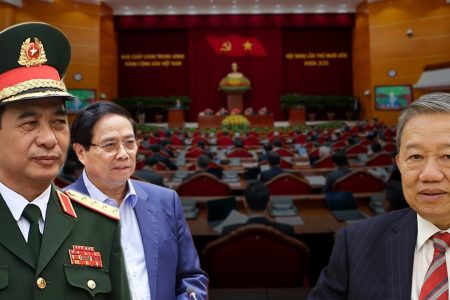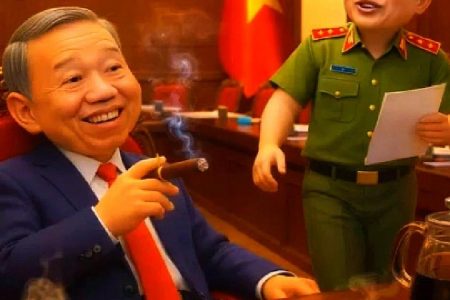
During the visit of Communist Party of Vietnam (CPV)’s General Secretary To Lam to the UK, from October 28 to 30, 2025, international media reported that the two countries had reached an agreement to limit the illegal immigration of Vietnamese people to the UK.
Accordingly, British Prime Minister Keir Starmer reached an agreement with To Lam on forcing the repatriation of Vietnamese people who fled to the UK through various routes, from rubber boats from France, to even hiding in containers like a few years ago that caused 39 Vietnamese people to suffocate.
According to international observers, a paradox that is that while Hanoi confidently talks about the „era of rising up,“ thousands of Vietnamese citizens bet their lives to leave their homeland to risk crossing the sea to the UK.
According to official figures, Vietnam is currently among the top six countries with the highest number of people crossing the sea to the UK, after Afghanistan, Eritrea, Iran, Sudan and Syria. These countries are engulfed in war or humanitarian crisis.
From June 2024 to June 2025, more than 2,500 Vietnamese people crossed the sea to the UK, a figure nearly double that of the previous two years. In the past seven years, a total of nearly 7,000 Vietnamese people have crossed the sea despite warnings and heartbreaking tragedies.
What makes citizens of Vietnam, a country praised as “stable, fast-growing and safe,” accept to leave everything to go to Europe to work, in such precarious conditions?
That difference reflects two realities: London sees the flow of people fleeing Vietnam as alarming while Hanoi still wants to tell the story of success in their reform.
According to Southeast Asian migration experts, the phenomenon of Vietnamese people crossing the sea is not simply an economic issue, but also a manifestation of a loss of faith in fair development opportunities.
In a study by the Singapore-based Southeast Asian Political Research Institute, it is said that the wave of Vietnamese migration in the past decade mainly comes from the central provinces, where income inequality and lack of jobs make young people consider going abroad as a „ticket to change their lives.“
However, many of them have chosen the illegal path, through France or Belgium, thanks to transnational human trafficking networks to reach the „promised land“ of the UK at a not small cost.
According to statistics from the British Home Office, the acceptance rate of Vietnamese asylum applications is up to 25%, this is an „unusually high“ number for a country without war or natural disasters. This shows that Vietnamese people migrate not only because of poverty, but also because of a lack of faith in the legal system and career prospects. In fact, leaving the country is no longer because of ideals but because of their feeling of being stuck in life.
The truth is, in Vietnam, while the middle class and businessmen have benefited greatly, a large part of the working class is still left behind. They do not have enough access to education, health care or good job opportunities for themselves.
These farmers, workers, and young people who do not have a chance to live that are creating the flow of people crossing the border, and this reflects the dark side of the economic „success“ that the Vietnamese leadership claims.
International scholars believe that when people in Vietnam feel they have no way forward, they will choose to leave, regardless of the risks. Meanwhile, on the global passport power ranking, Vietnam dropped eight places, on par with Cambodia, Liberia and Burundi, the countries with much lower incomes.
The public is questioning whether Vietnam’s leaders dare to look directly at the reason why people still have to leave, not because of poverty, but because of a lack of belief in a better life?
Tra My – Thoibao.de




